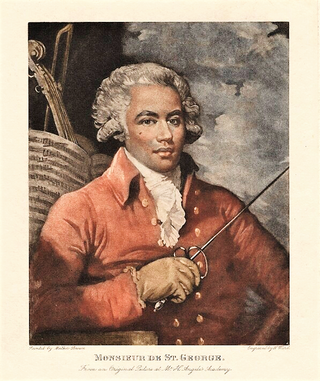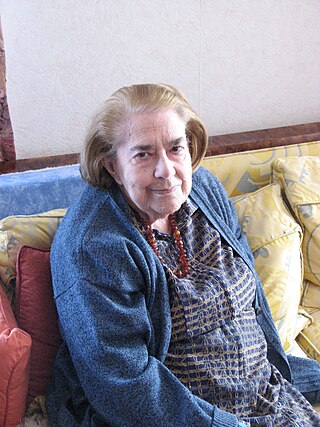The Orchestre Royal de Chambre de Wallonie (English: Royal Chamber Orchestra of Wallonia) is a Belgian chamber orchestra based in Mons.
The Orchestra was founded in 1958 by the violinist Lola Bobesco and its leadership was entrusted successively to the concertmasters Philippe Hirschhorn, Jean-Pierre Wallez, Georges Octors, and, since 2003, Augustin Dumay. It regularly accompanies soloists, instrumentalists, and vocalists at the semi-finals of the Queen Elisabeth Music Competition. Artists who have collaborated with the Orchestra have included José van Dam, Mstislav Rostropovitch, Mischa Maisky, Arthur Grumiaux, Jean-Pierre Rampal, Paul Tortelier, Philippe Hirschhorn, Janos Starker, Aldo Ciccolini, Maria João Pires, and Frank Braley.
In addition to giving numerous domestic performances, notably in Wallonia (specifically at its residence in Mons) and in Brussels (Palais des Beaux-Arts), the ensemble is also engaged at famous concert halls and prestigious music festivals abroad, such as the Concertgebouw in Amsterdam, the Théâtre des Champs-Élysées in Paris, the Folles Journées in Nantes, Lisbon, Bilbao, and Tokyo, and the Menton.

Wallonia, officially the Walloon Region, is one of the three regions of Belgium—along with Flanders and Brussels. Covering the southern portion of the country, Wallonia is primarily French-speaking. It accounts for 55% of Belgium's territory, but only a third of its population. The Walloon Region and the French Community of Belgium, which is the political entity responsible for matters related mainly to culture and education, are independent concepts, because the French Community of Belgium encompasses both Wallonia and the bilingual Brussels-Capital Region but not the German-speaking Community of Belgium.

IRCAM is a French institute dedicated to the research of music and sound, especially in the fields of avant garde and electro-acoustical art music. It is situated next to, and is organisationally linked with, the Centre Pompidou in Paris. The extension of the building was designed by Renzo Piano and Richard Rogers. Much of the institute is located underground, beneath the fountain to the east of the buildings.

Philippe Hirschhorn was a soviet violinist. He won the Queen Elisabeth Music Competition in 1967. A citizen of the Soviet Union, he was born in Riga, Latvia and first studied at Darsin music school in Riga with Waldemar Sturestep, later he studied with Michael Waiman at the Conservatoire of St. Petersburg.
David Grimal is a French violinist. He started to play the violin at the age of five. He won First Prize in violin and chamber music at the Conservatoire de Paris in 1993. Afterwards he did his postgraduate studies with Régis Pasquier. He also enriched and deepened his musicality by studying with such personalities as Philippe Hirschhorn, Shlomo Mintz, Isaac Stern. He is the son of Egyptologist Nicolas Grimal and the grand-son of Latinist Pierre Grimal. Mathematician Pierre Colmez is Grimal's first cousin.

Joseph Bologne, Chevalier de Saint-George(s) was a French violinist, conductor, composer and soldier. Moreover he demonstrated excellence as a fencer, an athlete and an accomplished dancer. His historical significance lies partly in his distinctive background as a biracial free man of color. Bologne was the first classical composer of African descent to attain widespread acclaim in European music. He composed an array of violin concertos, string quartets, sinfonia concertantes, violin duets, sonatas, two symphonies and an assortment of stage works, notably opéra comique.
Philippe Boesmans was a Belgian pianist, composer and academic teacher. He studied to be a pianist at the Royal Conservatory of Liège, and was self-taught as a composer, influenced by the Liège Group of Henri Pousseur, André Souris, and Célestin Deliège, and by attending the Darmstädter Ferienkurse. He worked for the Radio Télévision Belge de la Communauté Française (RTBF) from 1961, as a producer from 1971.

Christophe Rousset is a French harpsichordist and conductor, who specializes in the performance of Baroque music on period instruments. He is also a musicologist, particularly of opera and European music of the 17th and 18th centuries and is the founder of the French music ensemble Les Talens Lyriques.
Chants d'Auvergne, by Joseph Canteloube, is a collection of folk songs from the Auvergne region of France, arranged for soprano voice and orchestra or piano between 1923 and 1930. The 27 songs, collected in five series, are in the local language, Auvergnat, a dialect of Occitan. The best-known of the songs is the "Baïlèro", which has been frequently recorded and performed, sometimes with slight variations of Canteloube's arrangement, such as for choir or instrumental performance, rather than the original soprano solo.

The French composer Hector Berlioz made four attempts at winning the Prix de Rome music prize, finally succeeding in 1830. As part of the competition, he had to write a cantata to a text set by the examiners. Berlioz's efforts to win the prize are described at length in his Memoirs. He regarded it as the first stage in his struggle against the musical conservatism represented by the judges, who included established composers such as Luigi Cherubini, François-Adrien Boieldieu and Henri-Montan Berton. Berlioz's stay in Italy as a result of winning the prize also had a great influence on later works such as Benvenuto Cellini and Harold en Italie. The composer subsequently destroyed the scores of two cantatas almost completely and reused music from all four of them in later works. There was a revival of interest in the cantatas in the late 20th century, particularly Cléopâtre, which has become a favourite showcase for the soprano and mezzo-soprano voice.

The Opéra royal de Wallonie is an opera house located on the Place de l'Opéra, in Liège, Belgium. Together with La Monnaie and the Vlaamse Opera, the Opéra royal, as it is colloquially known, is one of the three major opera houses in Belgium. From the beginning, the institution occupied the Théâtre royal in Liège, a building loaned by the city.

Jean-Christophe Spinosi, born 2 September, 1964, is a French conductor, violinist, and the founder of French orchestra Ensemble Matheus.

Jean-Baptiste Lully was a French composer, dancer and instrumentalist of Italian birth, who is considered a master of the French Baroque music style. Best known for his operas, he spent most of his life working in the court of Louis XIV of France and became a French subject in 1661. He was a close friend of the playwright Molière, with whom he collaborated on numerous comédie-ballets, including L'Amour médecin, George Dandin ou le Mari confondu, Monsieur de Pourceaugnac, Psyché and his best known work, Le Bourgeois gentilhomme.

Rodéo is a 2004 album recorded by French pop singer Zazie. It was her fifth studio album and her seventh album overall. It was released on 22 November 2004 and achieved success in francophone countries. It provided four singles, but all of them were only released as promotional singles and therefore did not chart.

Made in Love is a 1998 album recorded by French pop singer Zazie. It was her third studio album and was released on 11 May 1998. It achieved success in francophone countries, although it was not as successful as Zazie's next albums. It provided five singles, two of which were only released as promotional singles. Except for "Tout le monde", they did not make it to the Top 40: "Tous des anges", "Ça fait mal et ça fait rien".

The Victoires de la musique classique are an annual French classical music award event founded in 1986. The awards are the classical equivalent of the popular music awards Victoires de la Musique and the Victoires du Jazz. Most of the awards are for actual performers, orchestras, composers, etc. as opposed to the Diapason d'Or given to recordings, though there is an Enregistrement français de musique classique de l'année.
French electronic music is a panorama of French music that employs electronic musical instruments and electronic music technology in its production.

Jeanne Angèle Desirée Yvonne Joulain was a French organist, concertist and music educator.

Nadia Tagrine was a Franco-Russian classical pianist.

Jean-Marc Fessard is a French classical clarinetist.

The Enesco Quartet is a French string quartet based in Paris.